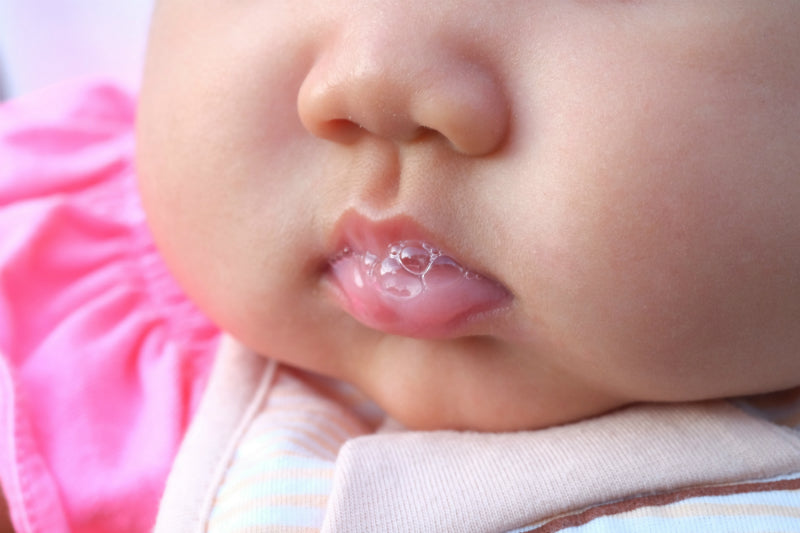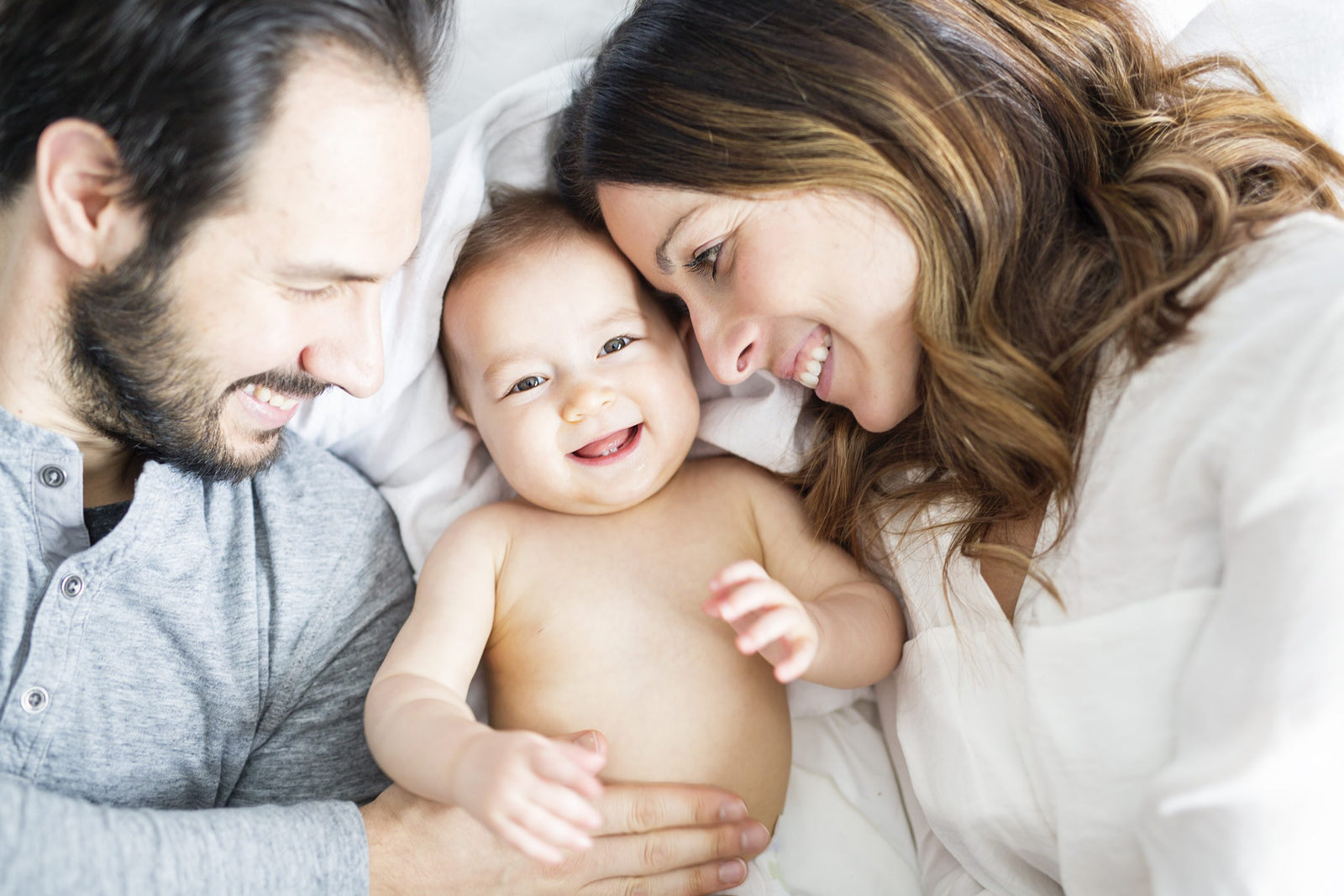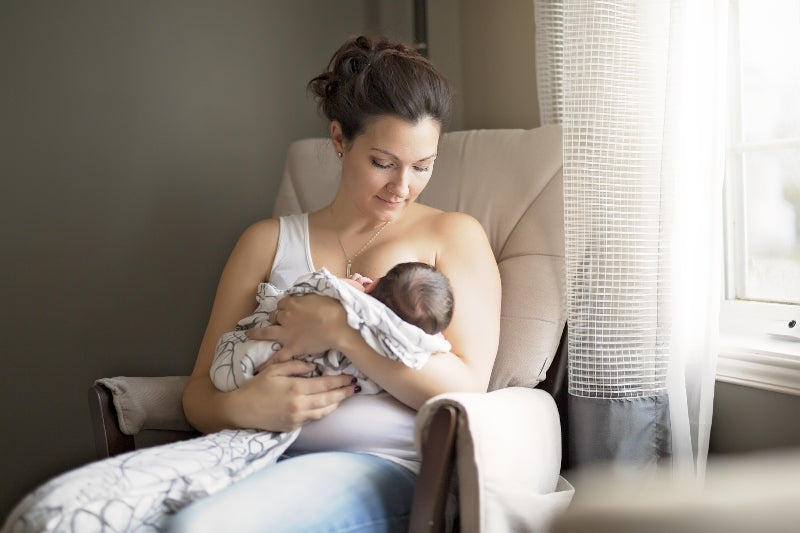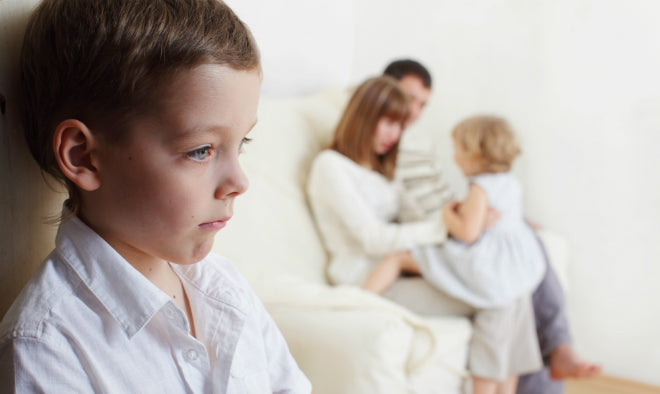" Reasons and helpful tips "
Regardless of whether the baby is hungry or very hungry, when the baby wants to be fed, there is usually a rush. Mothers who breastfeed their children have the advantage of always having milk at the perfect temperature immediately available. However, mothers who bottle-feed also gradually get into the rhythm and are quick to prepare the milk. Spitting up often occurs after feeding. What is behind this? When should the child be examined? Which baby accessories help? Find out here.
Whether breastfeeding or with a bottle - feeding is an intimate moment
Often, babies can hardly wait to feed and are full of anticipation. The first few weeks are also a very special time for mothers. Later in childhood, mother and child will never be so close and intimate when it comes to feeding. Drinking from the bottle or breastfeeding is something very intimate and at the same time something wonderful. After a filling meal, the child should burp briefly to let excess air out of the stomach.

Feeding is an intimate moment
People still talk about "burping" and this is what usually happens: a little of the milk that has just been drunk with great pleasure comes up and the baby spits. This is completely normal and nothing to worry about. Nevertheless, many mothers would like to know what this is all about.
The baby spits up after drinking: a natural reaction
A baby's digestive system is not yet fully developed until the third month of life. In other words, not all organs are working one hundred percent yet. Accordingly, the stomach closure, which actually prevents food from returning to the oesophagus, has yet to develop. In an infant, however, this muscle does not yet close properly.
In technical jargon, the slight spitting out of milk is referred to as reflux. This basically means nothing other than "reflux".
This reflux is particularly severe if the baby drinks too quickly and too greedily. However, incorrect posture after feeding can also cause the baby to spit up.

Spitting up as a natural reaction
A good comparison is an open drinking bottle. If it is well filled and has no cap, then at a certain level some of the contents will flow out.
What helps when a baby spits up?
As this is largely a natural process, you cannot prevent reflux - and there is often no reason to do so. But there are a few things you can do to prevent reflux from happening unnecessarily often. This starts with feeding. Mothers who are breastfeeding their child should express a little milk from the breast beforehand. This will prevent too much milk from shooting out at the beginning and the baby having to swallow too quickly. Make sure that you do not shake the bottle too much. Otherwise air bubbles will form in the bottle and this in turn will lead to flatulence and increased milk flow.

There is a suitable teat size for every age
The teat on the bottle is also very important. There is a suitable teat size for every age. You can even test for yourself whether it is optimal or not. To do this, hold the bottle vertically downwards. The milk should only flow out drop by drop and not gush out. It is often recommended to change the baby's diaper before feeding. If the diaper is only changed afterwards, the reflux may be stimulated even more when the baby has to lift its legs and turn around.
When feeding, make sure that your child is sitting in a relatively upright position and is not lying too flat. This is a good way of preventing too much spitting up after feeding.
When the baby has burped and the small sip of milk has found its way out again, give it some rest and avoid too much physical activity. This can also lead to increased reflux.
When is spitting up abnormal?
Naturally, parents worry about when harmless spitting up could turn into a serious illness. Therefore, pay attention to how your child develops and behaves. Is it gaining weight well, does it seem alert and lively? Then everything is usually fine. However, there is a big difference between a baby just spitting up and actually vomiting. If vomiting only occurs once, then there is no great danger behind it. However, if it happens repeatedly, caution is advised. Babies dehydrate very quickly and if you notice that your baby is spitting up more frequently, you should see a doctor immediately.

See a doctor as a precaution if spitting up occurs repeatedly
Sometimes this can be caused by viruses or germs that trigger vomiting. Hygiene is therefore extremely important when bottle feeding. Use a vaporizer to clean teats and bottles or boil them in water for a good 15 minutes. This is the only way to guarantee sterility. Furthermore, you should not prepare formula in advance!
Bibs, a muslin and a burp cloth help
A baby only spits up for a certain period of time after drinking. This phenomenon often disappears as soon as you start to introduce complementary foods. However, until this happens, small but very useful accessories such as Nuschelis with names as burp cloths or baby bibs made of terry cloth.
Wipes for at home and on the go
Breastfeeding or giving a bottle should become something of a ritual. So make sure you have a burp cloth or a baby wipe ready. On the one hand, you don't have to worry about anything dripping onto your clothes and on the other, you can wipe your baby's mouth dry.


In addition, it is always a good idea to carry bibs or a muslin in your changing bag when you are out and about. A baby may continue to spit up some milk for up to three hours after feeding. With the right wipe in your bag, you can react immediately and wipe up the liquid.
Cute motifs and beautiful designs for burp cloths
The great thing about the various wipes is that they are available in different designs and a wide range of colors. Apple green, rich yellow or sunny orange are just a small selection of this variety.


For a personalized touch, you can even have your bib or bib bib embroidered. Design the accessory with your child's name or have a sweet nickname embroidered on it. Either way, the result is a wonderful gift for your little one that will accompany them through the early teething period.










